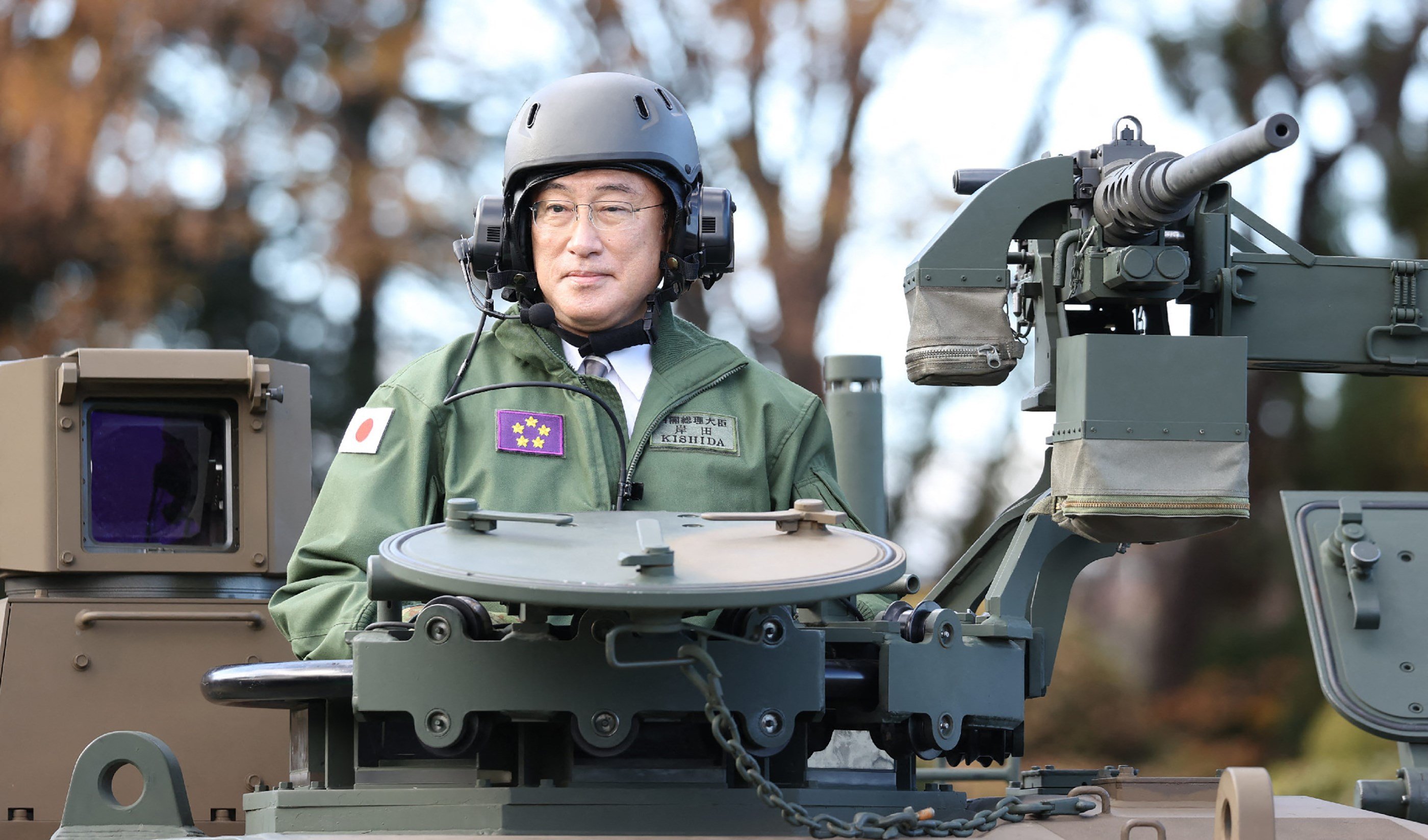Kishida could become 1st Japanese PM to attend NATO summit
Japan's PM Fumio Kishida is invited to join the NATO summit later in June, but his decision depends on domestic politics.
-

Japanese Prime Minister Fumio Kishida rides on a Japan Ground Self-Defense Force tank (AP)
Japanese Prime Minister Fumio Kishida may well become Japan’s first leader to attend a North Atlantic Treaty Organization (NATO) summit, Japanese media reported Saturday. The G7 leader’s summit in Spain will become Kishida’s first stop, according to NHK broadcaster
A report for the Kyodo news agency, based on a Japanese government source, the PM’s attendance at the NATO summit on June 29-30 depends on the state of domestic politics prior to the House of Councillors elections that will be taking place on the 10th of July.
Earlier, during a meeting in Tokyo, Kishida told US President Joe Biden that Japan sought to conduct next year’s G7 summit in the city of Hiroshima. Biden endorsed the suggestion for the 2023 summit.
Prior to the discussion of attending NATO, Japan had received an invitation, though unofficial, to join AUKUS - a tripartite military cooperation and alliance between Australia, the United States, and the United Kingdom.
While one Western alliance, NATO, deals with Russia in Europe, Anglo-Saxon powers need an alliance in the face of China - and plan to expand it, by inviting Japan to become the latest asset to the venture.
Washington announced on September 16 the establishment of the AUKUS security-strategic alliance in the Indo-Pacific region, which groups the US, UK, and Australia. As part of the alliance, the United States and the United Kingdom will help Australia enhance its nuclear capabilities through sharing advanced technologies, which will aid Australia in acquiring nuclear-powered submarines.
Read more: China slams AUKUS for announcing developing hypersonic weapons
In response to the alliance, the Secretary of the Security Council of Russia, Nikolai Patrushev, described the establishment of the AUKUS military alliance as a US adventure that undermines stability in Asia.
On the other hand, China's Ambassador to the United Nations, Zhang Jun, considered that countries should avoid creating another Ukraine-like crisis, pointing out that "anyone who does not want to see the Ukrainian crisis should refrain from doing things that may lead the other parts of the world into a crisis like this."

 2 Min Read
2 Min Read








